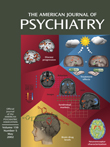Treating Anxious Children and Adolescents: An Evidence-Based Approach
A negative life event may precipitate anxiety, but that anxiety can be exacerbated by the reaction to life events in someone who is temperamentally emotional.The anxious parent is likely to respond to a vulnerable child with excessive control and protections.Overprotection provided by the parent increases the child’s tendency to perceive danger and to believe that he or she has no control over danger.The use of exposure is aimed at getting the child to approach feared situations and thereby learn to cope.Teaching the child to think more realistically can reverse the natural tendency to interpret situations as threatening.Relaxation techniques can reduce excessive arousal.
Information & Authors
Information
Published In
History
Authors
Metrics & Citations
Metrics
Citations
Export Citations
If you have the appropriate software installed, you can download article citation data to the citation manager of your choice. Simply select your manager software from the list below and click Download.
For more information or tips please see 'Downloading to a citation manager' in the Help menu.
View Options
View options
PDF/EPUB
View PDF/EPUBGet Access
Login options
Already a subscriber? Access your subscription through your login credentials or your institution for full access to this article.
Personal login Institutional Login Open Athens loginNot a subscriber?
PsychiatryOnline subscription options offer access to the DSM-5-TR® library, books, journals, CME, and patient resources. This all-in-one virtual library provides psychiatrists and mental health professionals with key resources for diagnosis, treatment, research, and professional development.
Need more help? PsychiatryOnline Customer Service may be reached by emailing [email protected] or by calling 800-368-5777 (in the U.S.) or 703-907-7322 (outside the U.S.).

